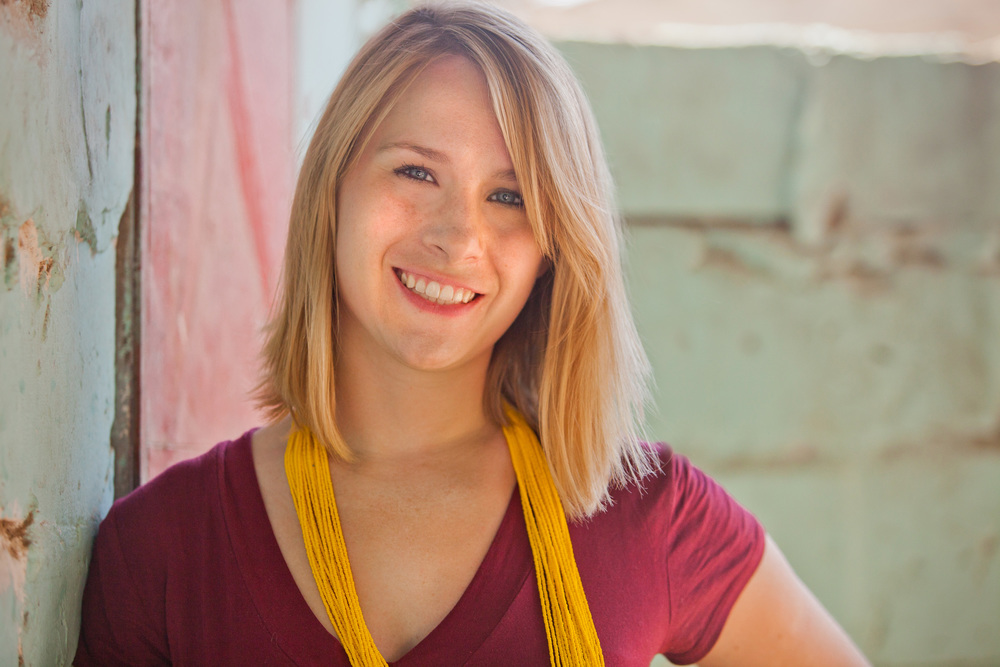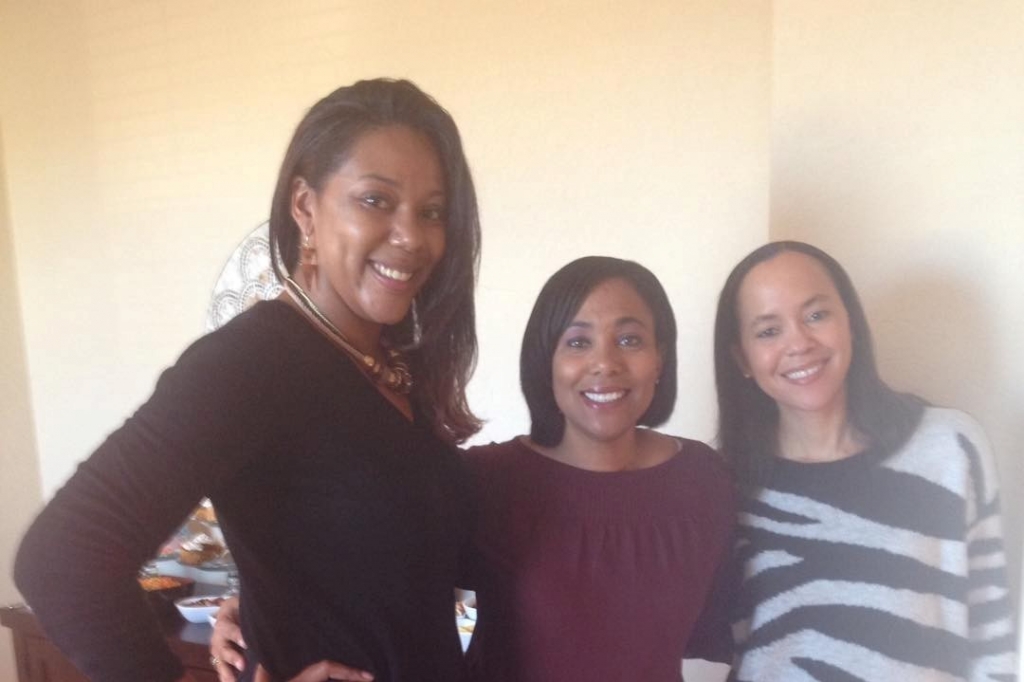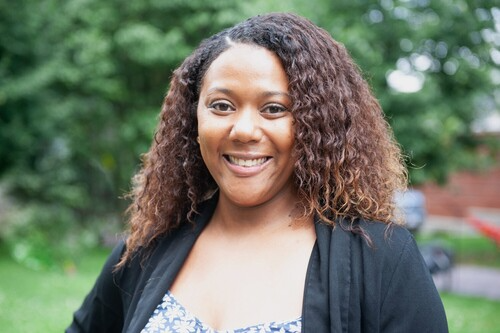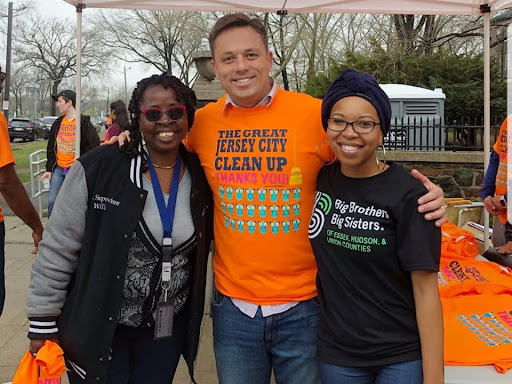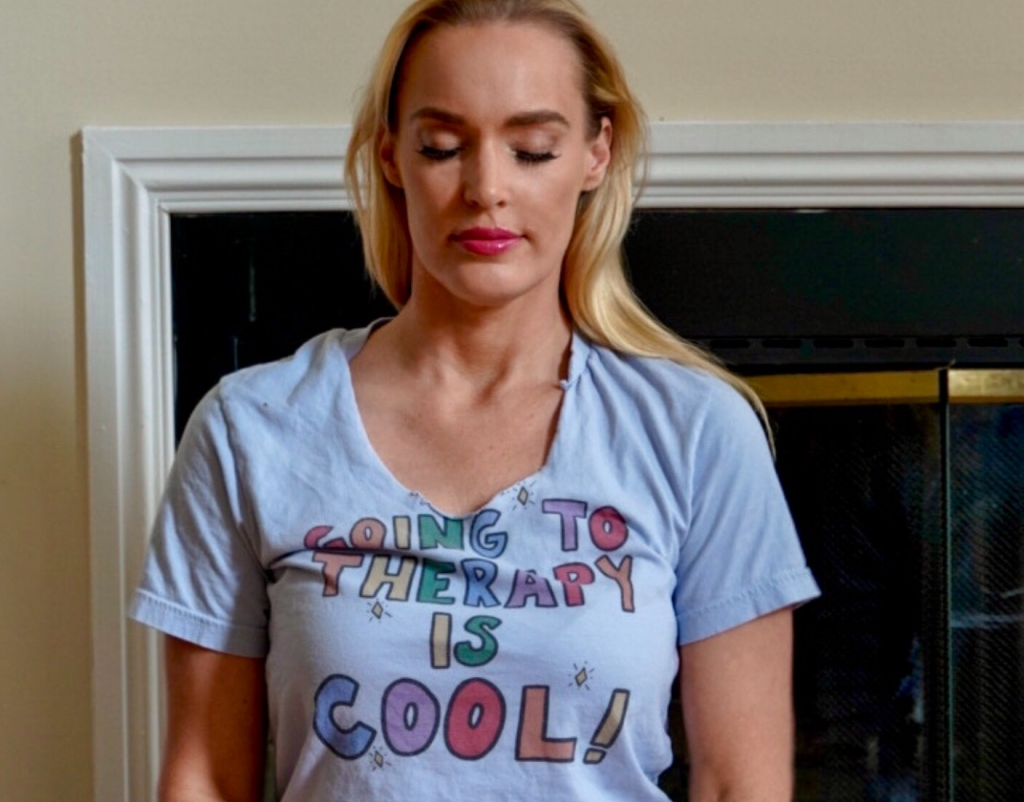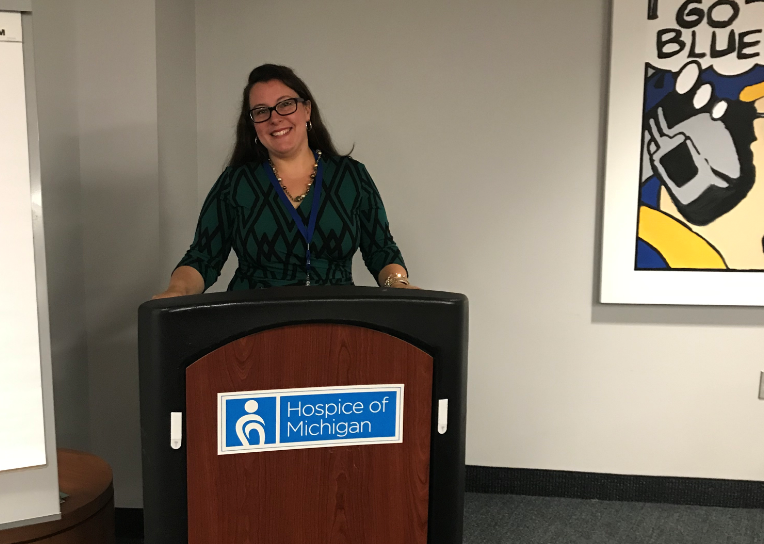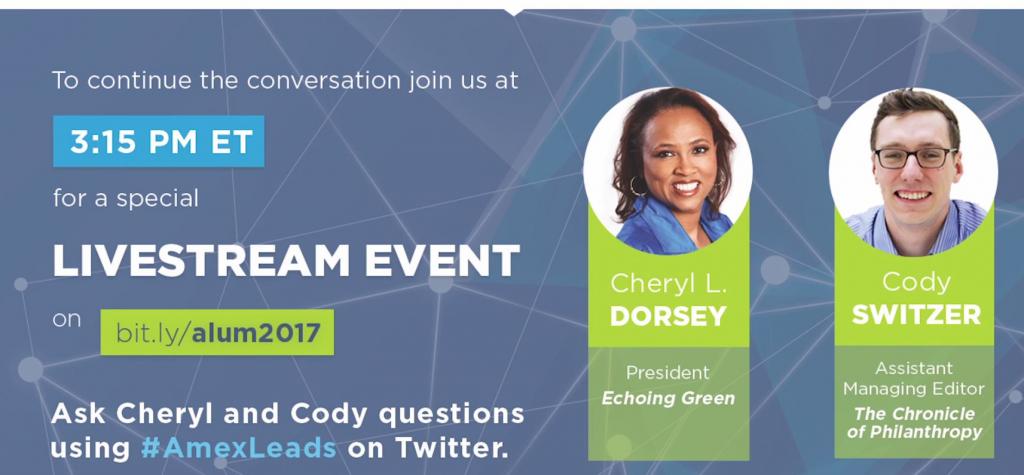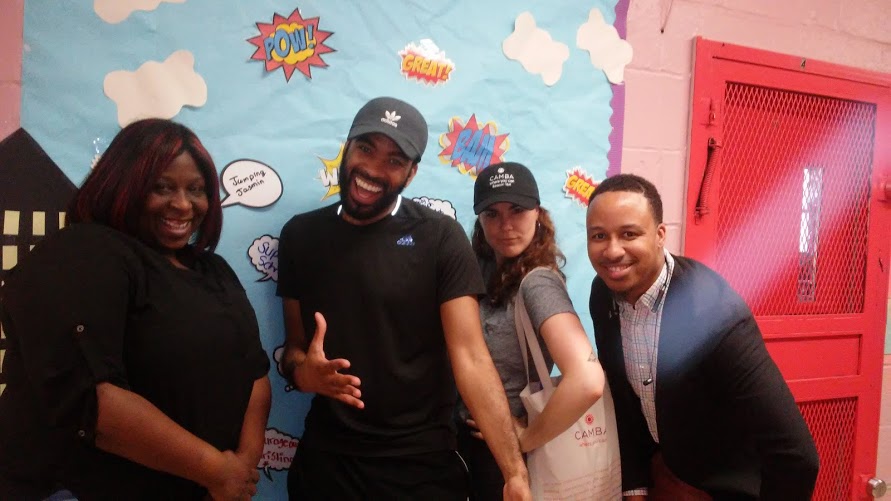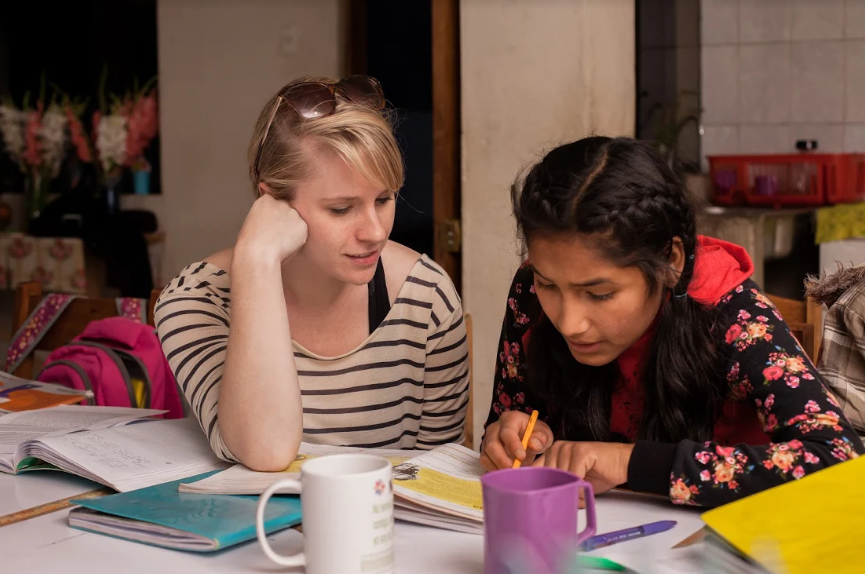
In partnership with the International Youth Foundation's YouthActionNet, we're sharing leadership journeys and conversations with Global Laureate Fellowship Alumni all during July. This is a part of our #LeadYoung series. Here is the second part.
What started as a small media campaign to support girls’ educational opportunities in 2009 soon became the nonprofit organization known as She’s the First. Today, She’s the First fights gender inequality through education and supports girls around the world who will be the first in their families to graduate high school. The initiative works in 21 countries, supporting students to be global citizens and leaders on issues that affect their lives.
When the campaign began, co-founders Tammy Tibbetts and Christen Brandt, were in college. Inspired by research showing that educating girls was a powerful lever to alleviate poverty, they felt they needed to do something. They also felt that opportunities for young people to work together to find solutions to pressing issues were sorely lacking in the world.
“She’s the First was borne of the idea that if young people came together and used their networks, they could create an impact,” says Christen, who now serves Chief Program Officer with She’s the First. “This was before crowd-funding. As part of a social media generation, we realized how much power is in a network.”
In 2012, she and Tammy left their full-time jobs to co-found the organization. She’s the First now has six full-time staff members, and a $1.5 million budget, and operates 225 campus chapters around the world.
For our #LeadYoung series, in partnership with the International Youth Foundation’s YouthActionNet, we spoke with Christen, an alum of the IYF Global Fellowship, about her leadership journey.
You said that you started She’s the First when you and Tammy were in college. What has your leadership journey been like as a young person?
Because we have campus chapters and work with students all over the world, it’s a constant cycle of young leaders coming into their own. One of the things that we learned early on is that we weren’t always going to have all the best ideas. Luckily for us, we have this network of incredible students who have their own ideas and solutions, and sometimes have solutions that make more sense than ours do. We learned how to listen more carefully and truly understand what students need and what their ideas are for helping their communities.
Our first-ever real [funding] campaign was a cupcake campaign and it was incredibly successful, mostly due to the vision of one of the students we were working with. She came up with this idea to tie-dye cupcakes and to sell them as part of a fundraiser for She’s the First, because you it’s fun, it’s cheap, it’s easy to sell on campus, it’s easy to make.
Eventually we launched our global awareness program, which is a centerpiece of She’s the First programing, where young people learn about issues that affect women and girls all around the world. It was started because students wanted a more in-depth understanding of the issues. They didn’t want to just raise money, they wanted to figure out what their own role was going to be.
I think a lot of my own leadership journey has been about learning to listen harder, better and smarter.
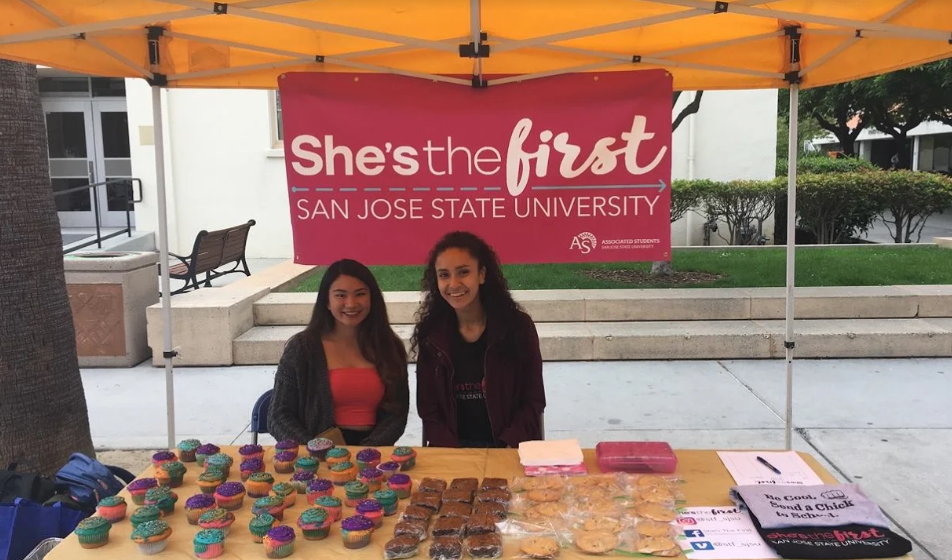
Students who organized a campus bake sale to fundraise for She's the First
What impact or success are you most proud of?
This past year we launched our first Fellowship program and I have to say that this was inspired in part by my own experience as a global fellow through the International Youth Foundation (IYF). We wanted to help students and the public at large understand that the kind of linear nature of charity that we’ve been using for a long time now, particularly in the U.S., isn’t really working. If it were, we wouldn’t still need to solve all of these problems.
We and the young people in our programs look at this work as more of a movement, and we want to show that everyone has a part to play. For example, we can have all of these tiny groups that are fundraising but if they don’t really understand the issues or where to put that funding, they’re not going to be effective. On the other hand, if they raise all of this money for girls’ education but the girls they raise it for are not ready to pick up that mantle and aren’t ready to face the very large challenges that they might face while going to school, that money is pretty useless. In the models we typically use for charity, those students would be looked at as “beneficiaries” instead of as partners. She’s the First is working on figuring out how we can help our students and the general public understand that we all have a role to play.
The Fellowship is designed to pull together students from all over who have solutions to problems in their own communities that are affecting girls and women. This past year, we had students come together in Guatemala and work for a week on personal and organizational leadership strategies. Now they have one year to go home and implement their individual community projects. That’s something I’m proud of because I think it really embodies the philosophies of She’s the First and creates a more equal playing field for girls regardless of where they were born.
Where do you see yourself as a leader in the next five to 10 years?
I think that She’s the First is going to be part of my life forever and ever. It’s not something I see myself ever walking away from completely. That said, I do think every organization—especially one like this, that’s built around galvanizing students—really benefits from new and diverse voices and leadership, so one of our goals over the next five to 10 years is building out more of that leadership as we get bigger. We want to make sure there are always more diverse voices. One thing that’s really exciting as we get older is that it means we have more and more alumni and are able to take on leadership positions. One thing I’m personally excited for is the day we can have a She’s the First alum on our Board of Directors, for example.
How have your personal experiences and identity influenced your approach as a young leader?
I think I’ve always been a feminist, and I have always believed really strongly in equality for women, and in fighting for the rights of women and girls. Over the last five years or so, I’ve learned a lot more about the nuances of what that means and the grey spaces where the right answers aren’t always clear, as well as how to be more intersectional and thoughtful in my approach.
I’ve learned how to be more intersectional and thoughtful in my approach.
And as I’ve had those realizations, I’ve had learning moments where it’s been really cool to have conversations with the rest of the team and for us as an organization to update our philosophies as we grow, change and adapt and improve. I think that for all of us, certainly for myself personally, as my thoughts change and I learn more, She’s the First grows too. That’s the benefit of having a nimble and flexible small team.
What are three skills you think every young leader or young social changemaker needs to learn to be successful?
I know that one thing that allowed me to move to bigger heights as a leader was an openness and willingness to grow. I spent a lot of my college years of leadership often thinking that I had all of the answers. Learning that I didn’t was one of the biggest and most important, life-changing leadership experiences. It’s also been the best one. Openness to learn is such a good skill.
Flexibility is really important, and a boldness, too. You can’t be afraid of your goals or the decisions you’re making. There are always personal, and professional, and sometimes organizational risks involved and at some point you need to be open to risks and just follow things through. The number one thing I’ve learned is that there’s always new things to learn. You can always hit a new level of leadership and think, “Oh now I have this figured that out” but you never do and it’s kind of what keeps it interesting.
What are some supports, trainings, guidance you have received that have helped you learn and grow as a leader? How did you find what you need?
IYF's Laureate Global Fellowship was an absolute gamechanger for me. I think prior to that I definitely paid a lot of lip service to the fact that leadership is a skill but thought it was one that I had. Going through a coaching experience helped me learn that leadership is a skill and it’s something you always need to be working on.
I really love going to workshops from research organizations. When it comes to content knowledge, I love going to workshops from Population Council. And the other thing I’ve found to be most useful is peer mentoring, being able to talk to other people who are in this space and doing similar jobs and hearing about the things they’re working on, the struggles they’re having, and how they approach them. More often than not, it’s that sharing of life knowledge and experience that helps me to grow.
How important to you is maintaining a network of support to keep learning and for self-care? How do you maintain this network?
I would say it’s breakfast meetings, I swear by them. Whether it’s for friends or it’s for professional contacts or mentors, I think that everybody has time in the morning or at least more time than we think we do. Everyone tries to set meetings that cut into your day and suddenly you feel overwhelmed. So if I can sneak someone in for an 8 am breakfast, it gets my day off to a good start and fits in better.
I also think it’s important to practice reciprocity, so if someone reaches out to you to network or needing help, respond to them and help them the same way that you would want someone to do for you.
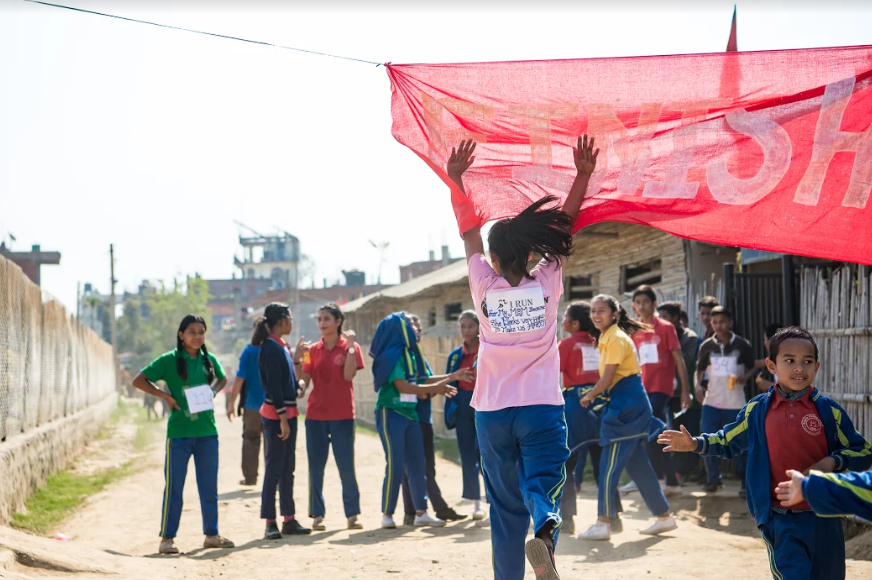
Girls in Nepal running a 5K race for equality
What is one mantra that gives you the confidence to lead?
I often get overwhelmed with the amount of things that are on my list and the thing that helps me the most is to look at one thing and say, “This is the thing I’m going to finish today” and give myself the grace to not worry about anything else until I have that one thing finished.
When I do that, I feel like everything is much more manageable. So maybe, “One thing at a time” is a better phrase. When I’m feeling stressed or like I can’t get it all done, taking a deep breath and focusing on one thing that needs to get done first is the way to get through it.
Who is a mentor you go to when you need to tackle a challenge or need fresh perspective?
Tammy is almost always my first defense whenever I hit a challenge. I have a lot of friends and advisors who are fantastic for when I’m having an organizational issue. When it comes to my personal leadership, Tammy is definitely a big resource as well and there’s a very transparent peer mentorship model we’ve developed. I have rougly 25 mentors I could definitely choose from.
Who is someone who has shaped you as a leader, and how? (This can be a mentor, real person, icon/hero, etc.)
One person I definitely apply the mantra, “What would she do?” to is my good friend Yassin who is someone from one of our partner programs and her approach to leadership and life is built on a foundation of love and grace. I live in New York where things are very fast-paced. But one thing I admire about her leadership style is she really takes the time to give people love and understanding, and that’s something I always strive to add to my leadership. As much as leadership is about the tactical stuff and hard skills, it’s also about attitude, and Yassin really embodies the best attitude.
Tom Kerns, one of our initial big funders, has always been and continues to be a great person who has always been there.
These are two people who are intimately involved in She’s the First and the network, and whom I can go to for general leadership lessons and to help me understand how to approach different problems differently.
If there’s anything else you’d want to tell people about leadership, what is it?
The goal post is always moving and that’s not a bad thing. I think the word “aspiring” can be a bit misleading, because it indicates that there’s a goal you’re looking to reach or become but all of the best leaders I know are reflective and always thinking about how to be better. I think that one of the biggest things to keep in mind is that leadership is a process. And if you want to get better at that process, help to make the people around you be the best that they can be, and if you’re doing that, then you’re already on your way to continually becoming a good leader.
Leadership is a process, and if you want to get better at that process, help to make the people around you be the best that they can be.
_______________________________________________________________________
This blog is one of a series of reflections from alumni of the YouthActionNet Global Laureate Fellowship. We will update this post with each week's new blog.
Post 1: In Kenya, a Metaphoric “Fatuma” Gives Young Leaders and Artists a Voice
Post 2: Supporting Girls Through Education and Love: Christen Brandt's Journey with She's the First
Post 3: Creating Opportunity for People with Intellectual Disabilities in Zambia

